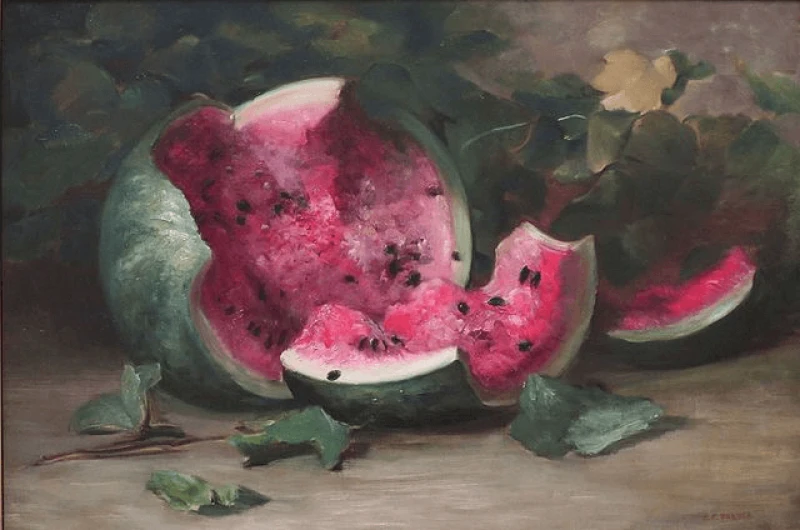Reconstructing the ‘perfect’ watermelon: Returning ‘lost genes’ from wild relatives to modern fruit
Reconstructing the ‘perfect’ watermelon: Returning ‘lost genes’ from wild relatives to modern fruit


Could farmers soon be growing and harvesting the perfect watermelon? It is no secret — delivering juicy, delicious “summer smiles” is no easy feat, and producing perfect watermelons from season to season is exceptionally challenging. According to a recent study published in the Plant Biotechnology Journal, watermelon growers may soon get a huge assist from science.
Researchers at the Boyce Thompson Institute recently constructed what they call a “super-pangenome” watermelon—combining the genome of the domesticated fruit and returning “lost” genes from its wild relatives. The researchers say the combination improves the fruit’s taste as well as its resilience during the growing process.
Genes from wild watermelon varieties that researchers were able to isolate within the super-pangenome control things like sweetness, flesh color, and rind thickness that were lost over centuries of domestication. One particularly exciting discovery was their ability to isolate the “tandem duplication of the sugar transporter gene ClTST2 that enhances sugar accumulation and fruit sweetness in cultivated watermelon.”
To create this super-pangenome watermelon, scientists referenced genes from 547 watermelon types spanning four species—cultivated watermelon (Citrullus lanatus), and its wild relatives: C. mucosospermus, C. amarus, and C. colocynthis.
This is an excerpt. Read the original post here

 | Videos | More... |

Video: Nuclear energy will destroy us? Global warming is an existential threat? Chemicals are massacring bees? Donate to the Green Industrial Complex!
 | Bees & Pollinators | More... |

GLP podcast: Science journalism is a mess. Here’s how to fix it

Mosquito massacre: Can we safely tackle malaria with a CRISPR gene drive?

Are we facing an ‘Insect Apocalypse’ caused by ‘intensive, industrial’ farming and agricultural chemicals? The media say yes; Science says ‘no’
 | Infographics | More... |

Infographic: Global regulatory and health research agencies on whether glyphosate causes cancer
 | GMO FAQs | More... |

Why is there controversy over GMO foods but not GMO drugs?

How are GMOs labeled around the world?

How does genetic engineering differ from conventional breeding?
 | GLP Profiles | More... |

Alex Jones: Right-wing conspiracy theorist stokes fear of GMOs, pesticides to sell ‘health supplements’




 Viewpoint — Fact checking MAHA mythmakers: How wellness influencers and RFK, Jr. undermine American science and health
Viewpoint — Fact checking MAHA mythmakers: How wellness influencers and RFK, Jr. undermine American science and health Viewpoint: Video — Big Solar is gobbling up productive agricultural land and hurting farmers yet providing little energy or sustainabilty gains
Viewpoint: Video — Big Solar is gobbling up productive agricultural land and hurting farmers yet providing little energy or sustainabilty gains Fighting deforestation with CO2: Biotechnology breakthrough creates sustainable palm oil alternative for cosmetics
Fighting deforestation with CO2: Biotechnology breakthrough creates sustainable palm oil alternative for cosmetics Trust issues: What happens when therapists use ChatGPT?
Trust issues: What happens when therapists use ChatGPT? California, Washington, Oregon forge immunization alliance to safeguard vaccine access against federal undermining
California, Washington, Oregon forge immunization alliance to safeguard vaccine access against federal undermining 30-year-old tomato line shows genetic resistance to devastating virus
30-year-old tomato line shows genetic resistance to devastating virus The free-range chicken dilemma: Better for birds, but with substantial costs
The free-range chicken dilemma: Better for birds, but with substantial costs ‘You have to treat the brain first’: Rethinking chronic pain with Sanjay Gupta
‘You have to treat the brain first’: Rethinking chronic pain with Sanjay Gupta
